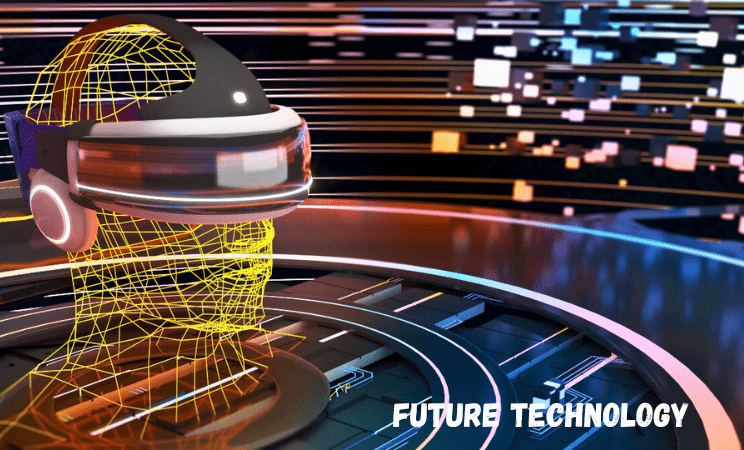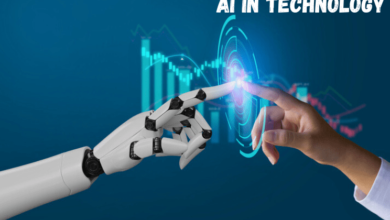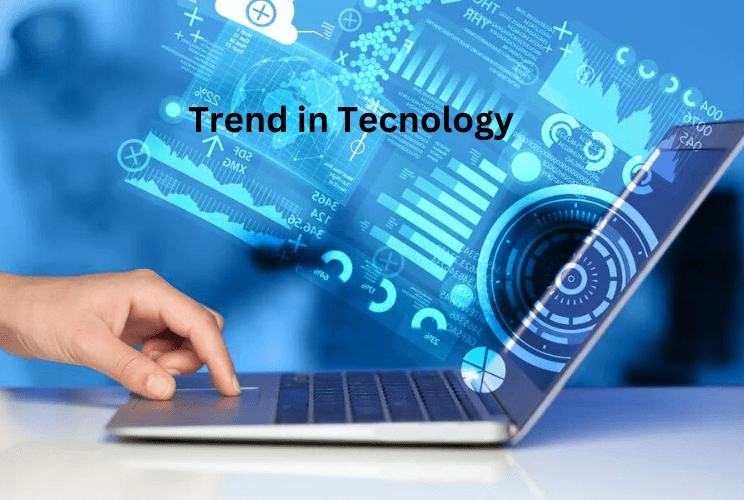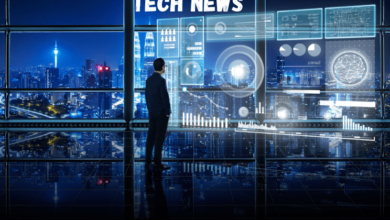Technology Solutions: A Comprehensive Guide
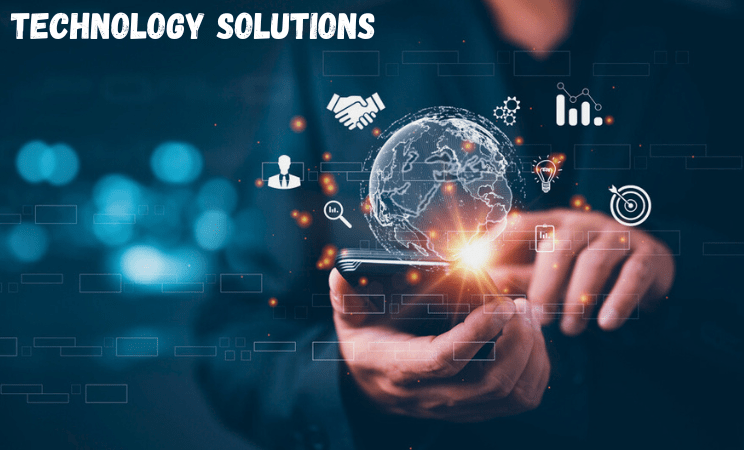
Technology Solutions: In our rapidly evolving world, technology plays a pivotal role in addressing a wide range of challenges. From healthcare and education to environmental sustainability and business operations, technology offers innovative solutions that empower us to overcome obstacles that were once considered insurmountable. This comprehensive guide explores how technology is being harnessed to address these challenges and pave the way for a brighter future.
Healthcare Transformation
The healthcare sector has been significantly transformed by technology, making it more efficient, accessible, and responsive to patient needs. Telemedicine, for example, has revolutionized the way patients receive care. Through video consultations, wearable health monitoring devices, and electronic health records, patients can now access medical advice and treatment from the comfort of their homes. This has proven crucial, especially during the COVID-19 pandemic when in-person visits became challenging.
Additionally, cutting-edge technologies such as artificial intelligence (AI) are being used for early disease detection, drug discovery, and personalized treatment plans. AI algorithms can analyze vast amounts of medical data to identify patterns and predict diseases, enabling proactive interventions and reducing healthcare costs.
Education and Remote Learning
The field of education has experienced a technological revolution, particularly in the wake of the COVID-19 pandemic. Remote learning, powered by online platforms and video conferencing tools, has become the new norm. This shift has made education more accessible, allowing students to access high-quality educational resources from anywhere in the world.
Moreover, adaptive learning technologies use AI to customize the learning experience for individual students. These systems adapt the curriculum based on a student’s progress and learning style, enhancing their comprehension and retention of information. As a result, technology is democratizing education, leveling the playing field for students worldwide.
Environmental Sustainability
One of the most pressing global challenges is climate change, and technology is at the forefront of efforts to address it. Innovations such as renewable energy sources, energy-efficient buildings, and electric vehicles are reducing our carbon footprint. Solar panels and wind turbines, for instance, are making it possible to generate clean, sustainable energy, reducing reliance on fossil fuels.
IoT (Internet of Things) devices play a crucial role in environmental monitoring and conservation. These devices collect and analyze data related to air quality, water quality, and wildlife tracking, allowing researchers and organizations to make informed decisions about protecting our planet.
Business Efficiency and Innovation
In the business world, technology is continuously evolving to enhance efficiency and foster innovation. Automation, machine learning, and robotics have streamlined various business processes, reducing human error and labor costs. For instance, chatbots and virtual assistants are being used to handle customer queries and support, allowing businesses to provide 24/7 service and improve customer satisfaction.
Innovation is also being driven by technology solutions through research and development. Big data analytics and data-driven insights enable companies to make data-backed decisions, optimize operations, and develop new products and services. Startups are capitalizing on technology to disrupt traditional industries and bring about radical changes in the way business is conducted.
Challenges in Cybersecurity
As technology solutions advances, it brings new challenges, particularly in the realm of cybersecurity. With the increasing reliance on digital systems and data, protecting sensitive information has become more critical than ever. Cyberattacks, data breaches, and identity theft are on the rise, prompting the need for robust cybersecurity solutions.
In response, companies are investing heavily in cybersecurity measures, including advanced encryption, threat detection algorithms, and employee training programs. Additionally, blockchain technology is being explored as a means to secure data and transactions by providing a tamper-proof ledger.
Communication and Connectivity
Technology has bridged gaps in global communication and connectivity. The proliferation of smartphones and high-speed internet access has enabled people to connect with each other, regardless of geographic barriers. This has not only enhanced personal communication but also transformed the way businesses operate on a global scale.
5G technology is poised to revolutionize communication further, providing faster and more reliable connections. It will enable the growth of the Internet of Things, smart cities, and augmented reality, making information more accessible and connectivity more seamless.
Space Exploration
Advancements in technology have also opened up new frontiers in space exploration. In recent years, we’ve seen missions to Mars, the development of reusable rockets, and the search for extraterrestrial life. These endeavors are driven by cutting-edge technology solutions and have the potential to reshape our understanding of the universe.
Robotic probes, powered by AI, are being used to explore distant planets and moons. Furthermore, private space companies are competing with governmental agencies to commercialize space travel, potentially making it more accessible to the public.
Challenges in Ethics and Privacy
As technology solutions becomes more integrated into our daily lives, ethical and privacy concerns are coming to the forefront. The collection and use of personal data, surveillance, and the potential for AI to be used for malicious purposes raise significant ethical questions.
To address these challenges, governments and organizations are developing regulations and standards to safeguard individual privacy and ensure that technology is used ethically. Concepts like “digital ethics” are emerging, guiding the responsible development and use of technology.
Sustainable Agriculture
Agriculture is another area where technology is playing a pivotal role in addressing challenges. With a growing global population and the need to produce more food sustainably, precision agriculture is becoming increasingly important. Technology such as drones, GPS-guided tractors, and sensors are being used to monitor and manage crop production more efficiently.
Moreover, biotechnology and genetic engineering are being used to develop crops that are resistant to pests and drought, ensuring greater food security. Sustainable agriculture practices are not only economically beneficial but also critical for environmental preservation.
Accessibility and Inclusion
Technology is breaking down barriers to accessibility and promoting inclusion for people with disabilities. Innovations such as screen readers, voice recognition software, and assistive devices are empowering individuals with disabilities to engage fully in education, employment, and social activities.
Additionally, technologies like 3D printing are making it easier and more cost-effective to create customized assistive devices. This fosters independence and improves the quality of life for people with disabilities.
Smart Cities
The concept of smart cities is gaining traction globally as urbanization continues to grow. Technology is being used to improve the quality of life for city dwellers through efficient transportation, waste management, energy consumption, and public services.
Smart city initiatives involve the integration of IoT devices and data analytics to optimize city operations. For example, sensors can monitor traffic patterns and adjust traffic signals in real time, reducing congestion and emissions. These innovations make urban living more sustainable and enjoyable.
Conclusion
Technology stands as the cornerstone of progress, enabling us to conquer multifaceted challenges across various domains. From healthcare and education to sustainability and business, it empowers us to surmount obstacles once deemed insurmountable. Yet, we must remain vigilant in addressing ethical, privacy, and accessibility concerns, ensuring technology’s benefits are equitably distributed. With responsible development and a focus on global issues, technology holds the promise of a brighter, more sustainable future. By fostering innovation and cooperation, we can look ahead to a world where technology solutions lead us toward a better and more inclusive tomorrow, embodying the potential for positive change.
FAQs
What is telemedicine?
Telemedicine is a form of remote healthcare where patients consult with doctors via video or phone, receiving medical advice and treatment from home.
How does AI impact healthcare?
AI in healthcare aids in early disease detection, personalized treatment plans, and drug discovery by analyzing vast medical data efficiently.
What are smart cities?
Smart cities use technology, like IoT and data analytics, to optimize services, transportation, and energy management, enhancing urban living.
How does technology address climate change?
Technology tackles climate change through renewable energy sources, IoT devices for environmental monitoring, and energy-efficient solutions that reduce carbon emissions.
What are digital ethics?
Digital ethics are principles that guide responsible development and ethical use of technology, ensuring privacy, security, and fairness in digital interactions.

